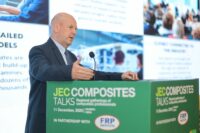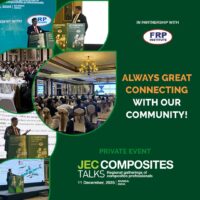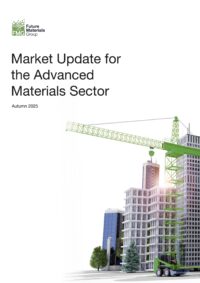Group14’s $463M raise signals a new era for battery materials
Magda Godzina presents FMG’s insights into the new era for battery materials and the wider implications for advanced materials.
The race to advance battery performance has intensified as the world transitions to electrification. At the heart of this shift lies not just demand for more batteries, but the need for better, more innovative materials that deliver higher energy density, faster charging, and thus more resilient supply chains. A recent milestone highlights the pace of progress: U.S.-based Porsche-backed Group14 Technologies has raised $463 million in Series D funding, led by South Korea’s SK, while also taking full control of its joint venture battery-material plant in South Korea.
Why Silicon-Carbon Matters
Group14’s flagship innovation is a silicon–carbon composite material (SCC55), is designed for use in lithium-ion battery anodes. Traditional graphite, while reliable, has physical limitations as it can only store a finite amount of lithium ions, constraining the overall capacity of the battery. By contrast, silicon can store up to ten times more lithium than graphite. However, it’s key limitation is that it swells and fractures during cycling, which undermines performance and durability.
SCC55 tackles this challenge by combining silicon with carbon in a structured composite, stabilizing the material and unlocking both higher energy density and faster charging. For end users, this translates to electric vehicles with longer ranges, shorter charging times, and batteries that last longer across cycles. For industries like aerospace or consumer electronics, the potential is equally transformative.
Scaling Innovation Beyond the Lab
Breakthrough materials often struggle to get past pilot innovation to large-scale deployment. Group14’s move to secure fresh capital and assume control over its South Korean production plant is therefore significant. It signals a deliberate shift from science to manufacturing at scale. Full operational control allows the company to optimize production processes, protect intellectual property, and ensure quality consistency which are all crucial factors as automakers and battery manufacturers look to secure long-term supply agreements.
This scale-up is also a response to demand signals from the EV and energy storage industries. Global battery markets are projected to grow exponentially over the next decade, and next-generation anode materials are increasingly viewed as the bottleneck to performance improvements. Group14’s raise positions it as one of the frontrunners to fill that gap.
Wider Implications for Advanced Materials
The implications for the wider advanced materials sector are clear; scaling new chemistries requires not only capital, but also the ability to integrate into global manufacturing networks without losing technical control. As battery cell production becomes increasingly commoditised, the companies that command differentiation at the materials level will capture outsized influence. Additionally, the challenges of cost, supply chain resilience, and performance cannot be solved without breakthroughs in chemistry and processing within advanced materials.
Group14’s latest funding round, combined with its decision to take full ownership of its South Korean production facility, marks a pivotal moment in its growth. The new capital provides the means to expand manufacturing capacity, while sole control over the plant gives the company greater flexibility to serve global customers and safeguard its technology. Together, these steps demonstrate how Group14 is moving beyond the development stage and positioning itself as a serious contender in the commercial battery materials market.
Recent articles
FMG’s Myriam Yagoubi to open CompositeWorld’s Carbon Fiber Event Series in a week’s time
With one week to go, the Carbon Fiber Event Series Presented by CW is set to open with a timely discussion on the state of the carbon fiber market. The series runs from January 28 [...]
Future Materials Group’s Jon Stowell presents at JEC Composites Talks India 2025
Mumbai, India – 11th December 2025 – Future Material Group’s (FMG) Senior Director, Jon Stowell, recently presented at JEC Composites Talks India 2025. The event brought together industry leaders from across the advanced materials industry for [...]
FMG has published the sixth edition of its Market Update for the Advanced Materials Sector
Cambridge, UK - 11th December 2025 - Future Materials Group (FMG) has published the sixth edition of its Market Update for the Advanced Materials sector, offering strategic analysis of the current forces reshaping the industry. This issue [...]




